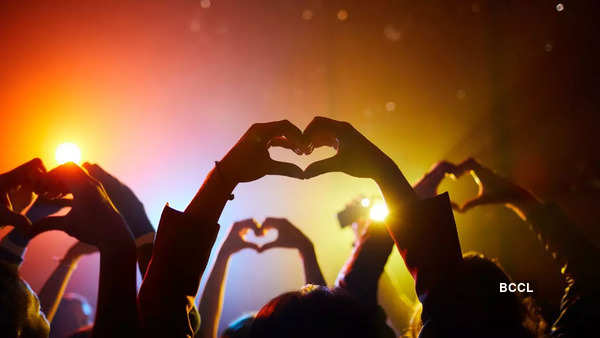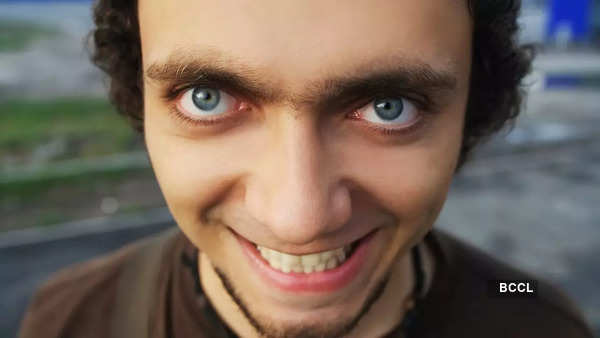From Irrfan Khan to Ratan Tata: Why some celebrities’ deaths seem so personal – Times of India
On August 31, 1997, the news of people’s Princess, Diana’s death not only shocked people across the world but it also made them grieve her untimely demise. Closer home, the death of popular Indian actor Irrfan Khan on April 29, 2020, followed by Rishi Kapoor’s death in the same week; India’s nightingale Lata Mangeshkar‘s passing away on February 6, 2022, at the age of 92; or more recently, India’s true ‘gem’ Ratan Tata‘s demise on October 9, 2024– all felt like a personal loss for many. The whole nation seemed to mourn the deaths of their beloved celebrities, who were not only famous for their works, but also touched millions of hearts. But why is it that the passing away of some popular figures, whom many people wouldn’t even have met in real life, hurts so deeply? Why do we feel too attached to our favourite celebs, despite only seeing them on screens or reading about them?
Ratan Tata No More: India Loses ‘Rare Gem’ | PM Modi, Ambani, Adani Lead Tributes
Explaining the psychology behind this feeling, Sumanpreet Kaur Khanna, Counselling Psychologist and Founder of Mind Unwind in Mumbai, told us,
“Celebrities often embody qualities or values that resonate with us, leading to what psychologists call ‘parasocial relationships’. These one-sided connections create a sense of familiarity, making fans feel close to their favourite stars.”

When we asked her why celebrities’ deaths feel so personal, she replied,
“When a celebrity passes away, it triggers a collective sense of loss and nostalgia among fans who have shared in their work— whether through comedy, sports, music, or acting. This loss can deeply affect our identity as fans, forcing us to reassess how we see ourselves.”
She further added,
“The death of a celebrity can symbolise the loss of cherished memories and experiences, leaving fans feeling as if a part of themselves has also vanished. This can lead to a profound identity crisis as we grapple with the change. It can sometimes bring up losses in your own life. How one might be feeling now can remind us of the way we felt after our loved one passed away.”
As Queen Elizabeth II once famously said, ‘Grief is the price we pay for love.’ This makes mourning the death of a beloved celebrity, even if it is in a parasocial relationship, difficult to deal with.
“Grieving a celebrity or public figure can feel surprising, but it’s perfectly normal. Our connections often stem from admiration for their achievements or their positive impact on the community. However, complex legacies can stir conflicting emotions and varied public opinions,”
Counselling Psychologist Sumanpreet Kaur Khanna told us.

Sharing a few tips to help one cope with the loss of someone they have never met, she further said:
– “Acknowledge your grief: Understand that your feelings are valid, even if others don’t share them. Grief can be unpredictable, so practice self-compassion.
– Reflect on your feelings: Consider what this loss means to you. Talk with friends or write about your thoughts and emotions to process your feelings.
– Honour their legacy: Find meaningful ways to pay tribute. Participate in vigils, create art, rewatch their work, or engage with causes they championed.
– Use grounding techniques: When overwhelmed by emotions, try deep breathing or sipping cold water to help you center yourself.”
LIVE: Ratan Tata Passes Away At 86 | State Funeral for Legendary Leader Ratan Tata
Virtual connections, real emotions: Understanding parasocial relationships

So far we understand that parasocial relationships are commonly seen with celebrities or television personalities who are often in the public eye. These are one-sided relationships, where people or fans feel a deep sense of connection with their beloved celeb, however, the latter is sadly unaware of their existence. Take, for instance, people who call themselves “Swifties” or “Belieber”.

But these strange connections are not only limited to celebs, as reports suggest that people can also form parasocial relationships with fictional characters, which makes them grieve the loss of a beloved character in films or books! For instance, take Harry Potter or Marvel characters and we are sure to notice their fans getting all worked up discussing about them and their deaths portrayed in the series. As The Atlantic says, ‘parasocial relationships are imaginary friends for adults’.
However, parasocial relationships aren’t a new concept as before the internet shrunk the world, earlier too some people felt a deep sense of connection with their favourite celebs. It’s just that now with social media and 24/7 access to news, it has become more common to form these relationships.

Parasocial relationships: Good or bad?
So, does it mean that a person having a parasocial relationship is doomed for life? Are they living in delulu, imagining being close to someone who doesn’t even know about their existence? Or can this warm feeling of being connected to a celeb have a positive side too? Well, it all depends on how much control one has over their mind– just like all aspects of life are about having a healthy balance. Exploring this, researchers David Giles and John Maltby in 2006 divided parasocial relationships into three main categories, namely: entertainment-social, intense-personal, and borderline-pathological. This classification was based on how much self-control one had over their feelings.

‘Parasocial relationships aren’t good or bad. They just are. It’s best to think of them as a lens for understanding your mental health. If you experience parasocial relationships as positive, you’re probably in a pretty good place emotionally and socially. If your parasocial relationships feel overwhelming, or they start taking over your life, you may have some underlying mental health challenges to address,’ reads a report by Cleveland Clinic.
On the bright side, parasocial relationships do have some benefits, like:
1. They can have a positive impact on your life and even inspire you to achieve more. For instance, if one has a parasocial relationship with their favourite cricketer, they might get inspired to workout and have a healthy lifestyle just like them.

2. Parasocial relationships were especially helpful during the COVID-19 pandemic, when people were stuck at home with many even battling loneliness and depression. Having parasocial relationships helped many feel connected to the outside world, and find glimmers in those gloomy days.

3. In some cases, parasocial relationships can also help people come to terms with something they have been experiencing in their own lives and feel validated. For instance, knowing how your favourite celeb overcame a serious health issue can give you hope that you too (if suffering from it or going through a similar situation) can get better. It can make people feel supported, especially in difficult times.
However, one needs to realise that too much of anything is never good, and this holds true for parasocial relationships too.

As Shri Krishna says in the Bhagavad Gita, “For him who has conquered the mind, the mind is the best of friends; but for one who has failed to do so, his very mind will be the greatest enemy.”

